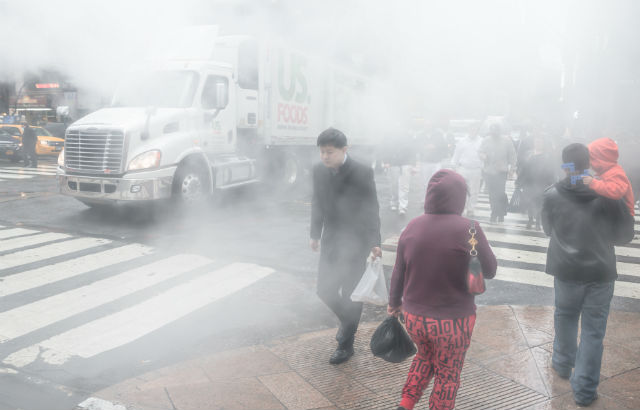
Photograph: A street in New York with heavy vapour from the underground
The research, Tourists and Air Pollution: How and Why Air Pollution Magnifies Tourists’ Suspicion of Service Providers, was published in the Journal of Travel Research.
Service providers include hospitality outlets such as bars and restaurants, accommodation, transport and sightseeing services as well as shopping and entertainment. The research found that tourists were more likely to be suspicious of these providers when they visited destinations with high levels of air pollution.
Air pollution shapes emotions
The study also found that tourists’ emotional states are shaped by air pollution on arrival, where heavy air pollution at a destination can lead tourists to experience more pessimistic feelings.
60 per cent of respondents reported that they had a negative mood when describing their feelings and experiences in destinations with high levels of pollution. More than 40 per cent reported engaging with coping techniques including buying masks and increasing indoor activities.
The study also shows that air pollution is just as important as weather and climate when it comes to evaluating tourist destinations.
Long-haul travellers less likely to be impacted by air pollution
Tourists visiting long-haul destinations were less affected by air pollution and were generally found to be more intent on taking full advantage of their visits rather than shorten or cancel activities due to poor air quality. However these tourists may not realise that their psychological states and responses are shaped by pollution levels on arrival.
Dr Yuansi Hou, Senior Lecturer in Marketing at Queen Mary said: “Next time, when you visit a destination, if you find yourself more likely to be dissatisfied with and suspicious of the local services, it could be due to the poor air quality around you.”
More information
Data was collected through a correlational study and two experiments featuring 135 and 284 respondents respectively. The experiments took place in September and October 2018.



